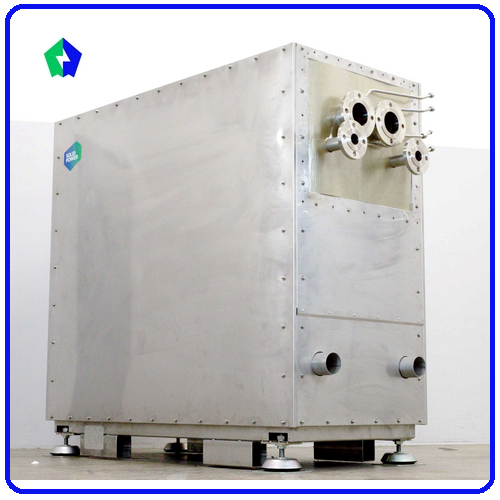Have you ever heard about the ambitious targets of emissions cuts in maritime sector imposed by IMO and the EU’s Green Deal? Have you ever wondered what will in the future replace heavy fuel oil (HFO) as an energy source for large ships? Do you know what the 21st century propulsion system of a cruise ship should look like?
Take a look at this box below:

What you can see above is a large Solid Oxid Fuel Cell (SOFC) stack module (LSM) of 32kW, designed and manufactured by SOLIDpower SA within the framework of the EU project NAUTILUS that focuses on development and evaluation of a novel integrated marine energy system - hybrid genset.
This large-scale module was made of 4x8kW stacks integrated in thermally insulated casing also including gas and DC-power connections. The stacks were preliminary qualified at SOLIDpower SA in the Switzerland and in February 2022 this large device was delivered to the DLR in Germany. At the DLR premises in Stuttgart, where the testbench needed for the qualification of the LSM has been put together, experimental characterization of the LSM will be performed. After these tests, the LSM will be connected with Li-Ion battery as experimental proof-of-concept.
Outcomes from the proof-of-concept (30 kW SOFC connected to battery) will be used in design validation for the virtual twin as well as a foundation for the functional demonstrator (60 kW SOFC coupled with battery). The overall target of the NAUTILUS project is to validate this novel energy system of a large-scale passenger’s ships to comply with the IMO emissions-reductions targets of 2030 and beyond.
Stay in touch with us!
#NAUTILUS_2020 #propulsionsystem #sustainableshipping #battery #fuelcell #cruiseships
***
⇒ Follow us on Twitter/LinkedIn to be on board.
Follow #NAUTILUS_2020
NAUTILUS is a short for Nautical Integrated Hybrid Energy System for Long-haul Cruise Ships.

This project has received funding from the European Union’s Horizon 2020 research and innovation program under grant agreement No 861647.
